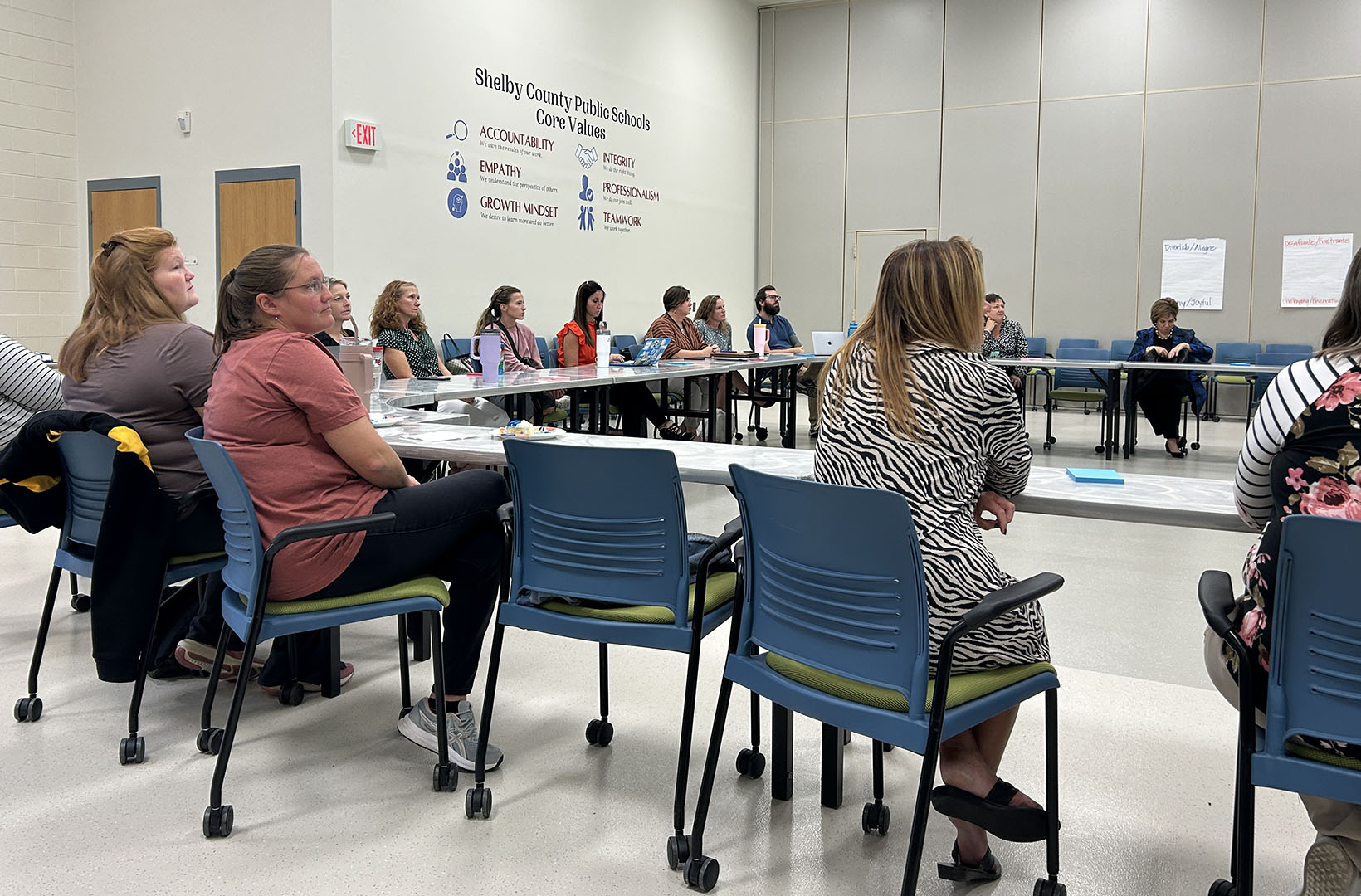(This article was first published in the Owensboro Messenger-Inquirer on Jan. 18, 2016.)

Karen Mallonee
By Karen Mallonee
karen.mallonee@daviess.kyschools.us
Being a parent has always been one of life’s most challenging roles. There is no script or book of directions that will tell us exactly what to say to our children or how to expertly handle certain situations.
As parents, we always strive to be our best and to do our best. Thankfully, we rely on others to assist us. Educators are often our primary resource when it comes to acquiring knowledge. Together, we shape our children’s future. Yet we are looking at a future that is changing more rapidly than it has in any time in history.
150 million people will be born on our planet this year, more than three-quarters of them not speaking English as a native language. China is poised to become the No. 1 English-speaking country in the world. Countries such as Japan, Germany, India, France and Mexico have a combined investment across the Commonwealth of Kentucky of more than $3.7 billion.
Internationally, there are 100,000 daily flights, carrying 8 million passengers with destinations to nearly 200 different countries. There are 270 languages on the Internet with more than half the traffic in a language other than English. A total of 1.49 billion people are connected through Facebook. The world is shrinking rapidly as technology becomes the greatest force for change.
With these fast paced worldwide changes comes a demand for greater knowledge of each other – other cultures, other environments, and yes, other languages. The global classroom is the perfect place to learn a world language. The necessity of learning a second, third or even fourth language is evident when we realize that our job is not about getting students comfortable with where they are now, but where they are going in 20, 30, or 40 years.
The U. S. Department of Labor estimates that today’s average teenager will have 10-14 jobs, not in their lifetime, but by the time they are 38. They will need a world-class education with not a local focus, but a global focus with knowledge of interconnected world economics, markets, careers and cultures. It requires a diversity of thought and a deeper understanding of the 7 billion inhabitants of this earth.
Approaching other cultures is like looking through a door into another world. We can reject that world as foreign by slamming the door shut, or we can open our minds as we embrace the uniqueness and richness of other languages. The study of a world language engages critical thinking skills, as well as enhances creativity, listening skills and memory while expanding one’s view of the world. Respect for cultural diversity is fostered through appreciation of the arts, music, dance, fashion, cuisine, philosophy, history and customs of others. Barriers which cause distrust and fear are replaced with a global perspective and understanding.
Therefore, we as parents and educators need to stress to our children the vast opportunities that exist for those who choose to study globally with world language acquisition. Yes, it is fun to order in español at a Mexican restaurant, speak italiano to your college roommate or communicate in Czech with ambassadors from Owensboro’s sister city. These benefits are immediate and enjoyable. Let’s strive to venture beyond that with learning a world language as simply a first step in preparing our children to meet this amazing 21st century world of technological change.
Not all of our students will become fluent speakers of a world language, but we should be determined to see each develop from an adolescent into a mature, responsible, caring adult. That adult will be more tolerant of others from different cultural heritages and accept their amazing similarities, as well as their uncompromising uniqueness. They will have a window to the world where global learning and thinking are the norms. Being a part of this multilingual world – where critical thinking is a necessity – will help us all make a small dent on this planet.
Then and only then, will students live to learn and learn to live.
Karen Mallonee is a world language educator at College View Middle School (Daviess County), where she teaches beginning and intermediate Spanish to 6th- and 7th-graders and high school credit Spanish I to 8th-graders. She also sponsors El club de español. An educator in Maryland, Indiana and Kentucky, Mallonee was named as the 2016 Kentucky Middle School Teacher of the Year.



Leave A Comment